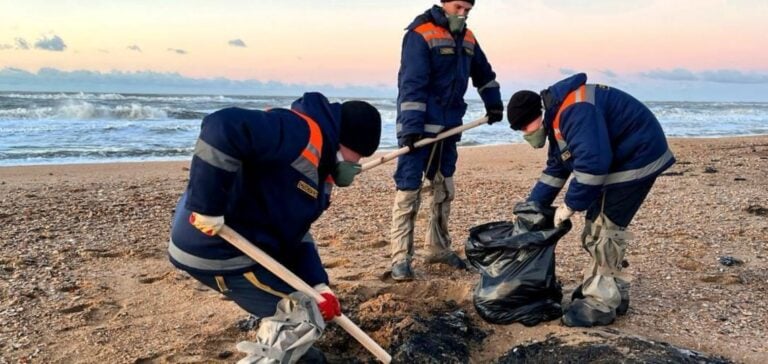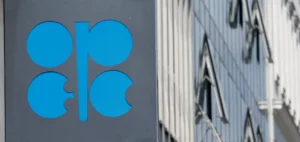The southwest of Russia and the annexed Crimea are facing a major environmental disaster after the sinking of the **Volgoneft-212** and **Volgoneft-239** tankers in December. These ships were carrying 9,200 tons of heavy fuel oil type **M100**, of which 26% is estimated to have already spilled into the sea, according to authorities. The strategic city of Sevastopol, Russia’s historic naval base, is now directly affected.
Unprecedented Pollution
M100 fuel oil has unique properties that complicate its treatment. Unlike conventional hydrocarbons, it does not float on the surface but accumulates on the seabed, rendering traditional cleanup methods ineffective. In the absence of adapted technologies, efforts are focusing on cleaning up beaches. Over **200,000 tons of contaminated soil** may require intervention, according to early estimates.
Limited Capabilities
Cleanup operations along Russian coasts, notably in Anapa and the Kerch Strait, continue with the help of volunteers. However, **Iryna Babanina**, a specialist from the British NGO **Conflict and Environment Observatory (CEOBS)**, points out a lack of equipment to contain the spill at sea. She states that restrictions linked to the ongoing war also prevent the deployment of specialized ships or aircraft to mitigate the impact.
Satellite imagery analysis remains the only reliable tool for monitoring the spill’s progression. Recent images show oil slicks reaching Cape Meganom in Crimea, with potentially devastating ecological implications.
A Tense Geopolitical Context
The Black Sea is theoretically protected by the **1992 Bucharest Convention**, which mandates cooperation in cases of hydrocarbon pollution. During a similar incident in 2007, Russia and Ukraine coordinated their efforts to limit the damage. Today, tensions render any exchange of information and collaboration impossible, worsening the situation.
Aging Infrastructure
The structural cause of the accident is also a point of concern. The two tankers, built over 50 years ago, belong to the obsolete **Volgoneft** fleet, often retrofitted for longer journeys than originally intended. According to Ms. Babanina, intensified Ukrainian strikes on Russian oil infrastructure have pushed Moscow to increase the use of these outdated vessels.
In parallel, international sanctions limiting Russian oil transport via traditional pipelines have encouraged the emergence of a **”shadow fleet”** of poorly regulated, foreign-registered ships. These vessels, often operating under unclear standards, pose an increased risk of similar accidents in the future.
Economic and Political Impacts
The consequences of this oil spill go far beyond environmental damage. Russia, seeking to maintain its influence in the Black Sea region, faces a major strategic and economic challenge. The cost of cleanup operations, combined with the loss of biodiversity and impacts on coastal tourism, highlights the vulnerability of its energy infrastructure.
President Vladimir Putin described this crisis as a **”catastrophic ecological disaster”**, a rare admission that may reflect the scale of the pressures on the Russian economy amid the ongoing war.






















